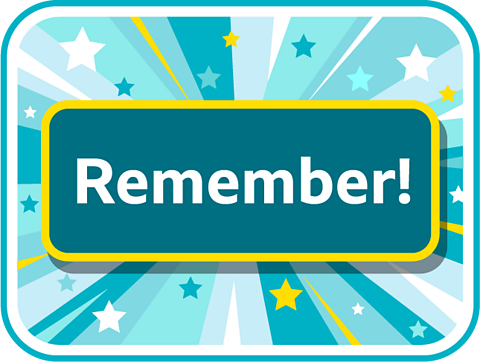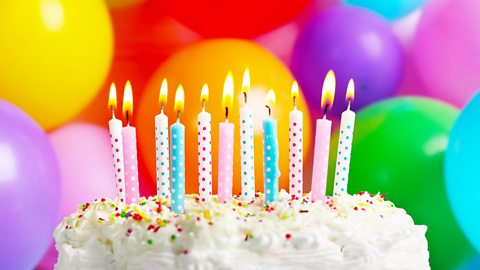Days and months in Spanish.
I want to have a birthday party - una fiesta de cumpleaños.
When? - Âż°äłÜá˛Ô»ĺ´Ç?
Today? - Âż±á´Ç˛â?
Tomorrow? - Âż˛Ń˛ąĂ±˛ą˛Ô˛ą?
Vale…el cuatro de diciembre.
In Spanish you say el before the number and de before the month.
El cuatro de diciembre.
The numbers stay the same as they are normally.
°äľ±˛Ôł¦´Ç…dľ±±đł¦ľ±˛őĂ©ľ±˛ő…v±đľ±˛ÔłŮ±đ.
They don’t change when you talk about the date, apart from when you want to say 'the first' which is primero.
New Year’s Day - el dĂa de Año Nuevo es el primero de enero.
Valentine’s Day - el dĂa de San ValentĂn es el 14 de febrero.
If you want to talk about stuff you do routinely you put los in front of the word for the day.
Los lunes juego al baloncesto - On Mondays I play basketball.
When you’re talking about a particular day, you put el in front of it.
Saturday is my favourite day, because it’s the weekend!
¡El ˛őá˛ú˛ą»ĺ´Ç es mi dĂa favorito, porque es el fin de semana!
¡µţľ±±đ˛Ô!
The date
To say the date in Spanish, say el (the), then the number, followed by de (of) and the month.
For example:
el ocho de octubre - 8th October
el dieciséis de mayo - 16th May
To say 'on the first of the month', use the word primero or the word uno.
For example:
- el primero de abril - 1st April
or
- uno de abril - 1st April
When saying or writing the date, use cardinal numbers such as 2, 4 and 30, not ordinal numbers such as 2nd, 4th and 30th.
Use the months below and your knowledge of numbers to say different dates that are important to you.
| Spanish | English |
|---|---|
| Meses | Months |
| enero | January |
| febrero | February |
| marzo | March |
| abril | April |
| mayo | May |
| junio | June |
| julio | July |
| agosto | August |
| septiembre | September |
| octubre | October |
| noviembre | November |
| diciembre | December |
The date in the present, past and the future
When talking about the date including the day of the week, you do not use el.
For example:
• ¿Cuál es la fecha de hoy? - What is the date today?
• Hoy es lunes, trece de mayo - Today is Monday 13th May.
Days of the week
| Spanish | English |
|---|---|
| ¶Ůòą˛ő | Days |
| lunes | Monday |
| martes | Tuesday |
| łľľ±Ă©°ůł¦´Ç±ô±đ˛ő | Wednesday |
| jueves | Thursday |
| viernes | Friday |
| ˛őá˛ú˛ą»ĺ´Ç | Saturday |
| domingo | Sunday |

In Spanish, days of the week and months of the year do not require a capital letter.
When you do not include the day of the week, you do need to use el.
For example:
- Hoy es el treinta de mayo - Today is 30th May.
To ask what the date is tomorrow, you ask:
- ¿Cuál es la fecha de mañana? - What is the date tomorrow?
And you answer:
- Mañana es el veinticinco de enero - Tomorrow is 25th January.
To ask what the date was yesterday, you ask:
- ¿Cuál fue la fecha de ayer? - What was the date yesterday?
And you answer:
- Ayer fue el ocho de octubre - Yesterday was 8th October.
Click on the downloadable vocabulary box to see a list of the numbers 1-31 which will help you to talk about the date.

Remember, there are only four numbers with accents in Spanish:
»ĺľ±±đł¦ľ±˛őłĺĂ©łĺis - 16
±ą±đľ±˛ÔłŮľ±»ĺłĺĂłłĺs - 22
±ą±đľ±˛ÔłŮľ±łŮ°ůłĺĂ©łĺs - 23
±ą±đľ±˛ÔłŮľ±˛őłĺĂ©łĺis - 26
Numbers after 30 use y (and).
For example:
- treinta y uno
Numbers in the twenties need an i followed by a number.
For example:
- veint_i_cuatro
Describing when you do activities
To talk about an activity or event that happens on the same day every week, use los.
For example:
Los lunes juego al tenis - On Mondays I play tennis.
Los domingos Daniel hace nataciĂłn - On Sundays Daniel goes swimming.
You can talk about an activity or event that happened on a specific day in the past.
Remember that we use el with a specific day.
For example:
- El jueves pasado, fui al supermercado - Last Thursday, I went to the supermarket.
You can also talk about an activity or event that will happen on a specific day in the future in the same way.
For example:
El łľľ±Ă©°ůł¦´Ç±ô±đ˛ő, mi hermano va a ir al cine - On Wednesday, my brother is going to go to the cinema.
El lunes que viene, voy a visitar a mis abuelos - Next Monday, I am going to visit my grandparents.

My birthday
To say what date your birthday is in Spanish, follow the same sentence pattern as in English.
For example:
¿Cuándo es tu cumpleaños? - When is your birthday?
Mi cumpleaños es el doce de junio - My birthday is 12 June.

Other people’s birthdays
To say the date of someone else’s birthday, you will need to use el cumpleaños de followed by the person.
For example:
¿Cuándo es el cumpleaños de tu madre? - When is your mother's birthday?
El cumpleaños de mi madre es el treinta y uno de enero - My mother's birthday is 31st January.
Quiz
Find out how much you know about days and months in Spanish with this short quiz!
Game - FestiLingo: Spanish. game
Visit the festival and practise Spanish language skills in this game

More on Topics
Find out more by working through a topic
- count5 of 9
